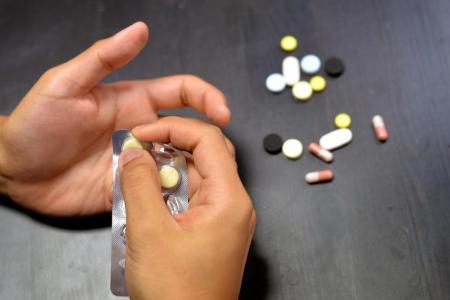Drug abusers’ kids threatened not just by drugs
Growing up in a unstable environment would affect a child emotional and mentally
In Parliament on Tuesday, Member of Parliament Melvin Yong (Tanjong Pagar GRC) cited studies that said children with drug-addict parents are more likely to take drugs later in life.
While that might be true, experts told The New Paper, it is not the only challenge children of drug-addict parents can face.
Family therapist Evonne Lek told The New Paper the worst case scenario happens when the mother takes drugs while pregnant.
This would affect the child's cognitive and physical abilities.
And growing up in an environment where either or both parents are not present or stable would be a deteriment to the child emotionally and mentally.
And besides taking drugs, Ms Lek said they might also turn to smoking, drinking or sleeping tablets.
She added that a drug-abuser parent might also be unaware of his or her behaviour when on a high, which could lead to violence or sexual abuse. Ms Lek said it could lead to mental health problems in the child's future and leave them more susceptible to risky behaviours.
Mr Alfred Lau, Senior Social Services Executive from Industrial and Services Co-operative Society (ISCOS), is a prisons partner who works with the families and children of incarcerated drug offenders.
He told TNP: "Many have more than three children. They also have other issues to grapple with, leaving them unable to give the children any more than the bare minimum amount of attention."
In such cases, the parent could leave the child in someone else's care.
In February, a toddler was rescued by Central Narcotics Bureau (CNB) officers during a drug bust.
His mother, who was suspected of abusing drugs, had left the one-year-old in the care of a 33-year-old Singaporean woman who was arrested after being found with a bag containing drugs.
The child's biological mother, who was on the run, was arrested later. She was four months' pregnant and had tested positive for drugs.
A Salvation Army spokesman said that despite the problems, it is important to recognise that such children are no different from any child who is also being affected by a difficult situation, such as a divorce, abuse or financial struggles.
He said: "I think it's important to recognise that the child has the potential and ability to be a contributing member of society. It is imperative for the community to rally together to support families undergoing incarceration, but to also accord them the dignity that they deserve."
Get The New Paper on your phone with the free TNP app. Download from the Apple App Store or Google Play Store now



